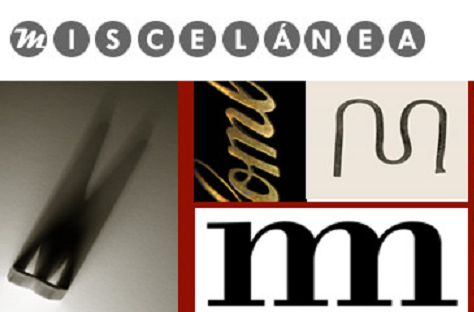Meeting the Civilised Barbarian: Bram Stocker's Dracula and Joseph Conrad's Hear of Darkness
DOI:
https://doi.org/10.26754/ojs_misc/mj.200011220Palabras clave:
Stoker, Conrad, Coppola, Masculinidad, ColonialismoResumen
Aunque no existía una relación directa entre Bram Stoker y Joseph Conrad, hay motivos suficientes para comparar sus dos obras maestras, Drácula y El corazón de las tinieblas, respectivamente. Ambos textos se publicaron por primera vez el mismo año, 1898, y «ambos expresan preocupaciones similares sobre el inicio de la crisis de la masculinidad que aún se deja sentir hoy en día y la posición de Europa respecto a los márgenes del mundo colonial. Tanto Conrad como Stoker eran extranjeros que vivían en Inglaterra, lo que confería una dimensión intrigante a sus puntos de vista sobre la cuestión colonial e imperial. Estos vínculos se han acentuado recientemente con la filmación de Apocalypse Now (adaptación de El corazón de las tinieblas) y Drácula de Bram Stoker por el director estadounidense Francis Ford Coppola. Coppola ha releído la crisis de la masculinidad y la cuestión imperial, transformándolas en una despedida a la muerte de una forma de masculinidad patriarcal que él romantiza.
Descargas
Citas
ACHEBE, Chinua. 1978. "An Image of Africa". Research in African Literature.
ARATA, Stephen D. 1990. "The Occidental Tourist: Dracula and the Anxiety of Reverse Colonization". Victorian Studies, 33:4: 621-645.
AUERBACH, Nina. 1995. Our Vampires, Ourselves. Chicago and London: The University of Chicago Press.
BRANTLINGER, Patrick. 1988. Rule of Darhiess: British Literature and Imperialism 1830-1914. Ithaca and London: Cornell U. P.
CONRAD, Joseph. 1984. Heart of Darhiess. In Youth, Heart of Darkness, The End of the Tether. Oxford and New York: Oxford U. P.: 43-162.
Cox, C. B. (ed.). 1981. Conrad: Heart of Darhiess, Nostromo and Under Western Eyes. London: Macmillan.
DIJKSTRA, Bram. 1996. Evil Sisters: The Threat of Female Sexuality and the Cult of Manhood. New York: Alfred Knopf.
GAGNIER, Regenia. 1990. "Evolution and Information, or Eroticism and Everyday Life". In Barreca, R. (ed.). Sex & Death in Victorian Literature. Houndmills and London: Macmillan: 140-157.
GELDER, Ken. 1994. Reading the Vampire. London and New York: Routledge.
KNOWLES, Owen. 1989. A Conrad Chronology. London: Macmillan.
---. 1994. '"Who's afraid of Schopenhauer?' A New Context for Conrad's Heart of Darkness". Nineteenth Century Literature. 49:1: 75-106.
LEATHERDALE, Clive. 1985. Dracula: The Novel and the Legend. Wellingborough, Northamptonshire: The Aquarian Press.
LEWIS, Pericles. 1998. "His Sympathies Were in the Right Place: Heart of Darkness and the Discourse of National Character''. Nineteenth Century Literature, 53:2: 211-244.
PICK, Daniel. 1988. "'Terrors of the Night': Dracula and 'Degeneration' in the Late Nineteenth Century". Critical Quarterly, 30:4: 71-87.
PUNTER, David. 1980. The Literature of Terror: A History of Gothic Fictions from 1765 to the Present Day. London and New York: Longman.
SEDGWICK, Eve Kosofsky. 1985. Between Men: English Literature and Male Homosocial Desire. New York: Columbia U.P.
SHAFFER, Brian W. 1993. "'Rebarbarizing Civilization': Conrad's African Fiction and Spencerian Sociology". PMLA, 108:1: 45-58.
SHERRY, Norman. (ed.). 1973. Conrad: The Critical Heritage. London and Boston: Routledge and Kegan Paul.
SMITH, Johanna M. 1996. "'Too Beautiful Altogether': Ideologies of Gender and Empire in Heart of Darkness". In Murfin, R. C. (ed.). Joseph Conrad: Heart of Darkness. Boston: St. Martin's Press: 179-195.
STOKER, Bram. (1897) 1983. Dracula. Oxford and New York: Oxford U. P.
WATT, Ian. 1980. Cornad in the Nineteenth Century. London: Chatto & Windus.
WHITE, Andrea. 1995. Joseph Conrad and the Adventure Tradition: COnstructing and Deconstructing the Imperial Subject. Cambridge: Cambridge U.P.
YOUNG, Gloria L. 1982-83. "Quest and Discovery: Joseph Conrad and Carl Jung's African Journeys". Modern Fiction Studies, 28:4: 583-589.
ZHUWARARA, R. 1994. "Heart of Darkness Revisited: The African Response". Junapipi, 16:3: 21-37.
Descargas
Publicado
Cómo citar
Número
Sección
Licencia

Esta obra está bajo una licencia internacional Creative Commons Atribución-NoComercial 4.0.


